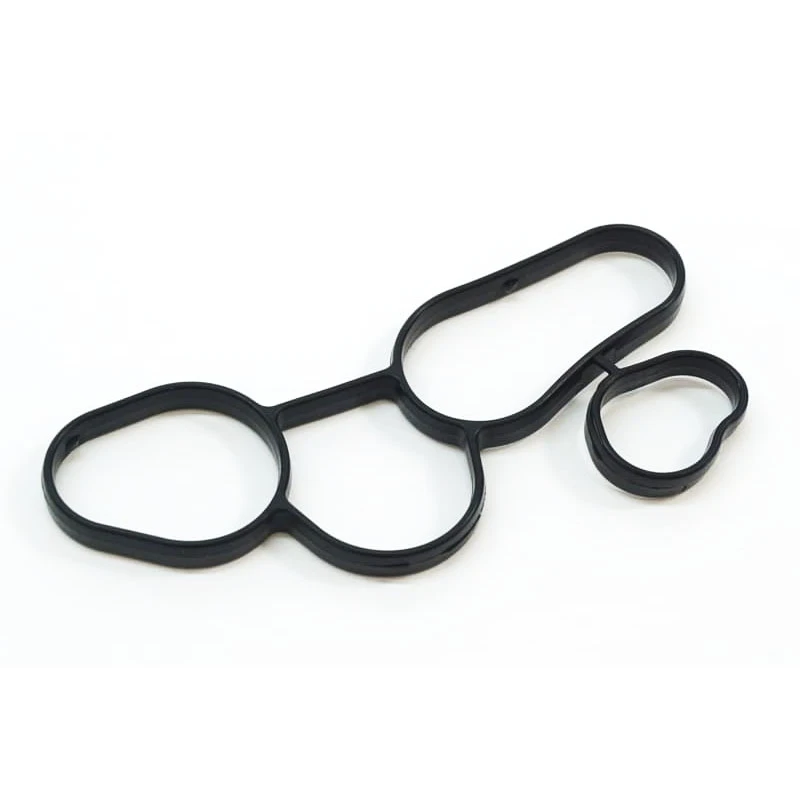Durable Metal Oil Seal for Enhanced Performance and Leakage Protection
Understanding Metal Oil Seals Importance and Applications
In the world of mechanical engineering and maintenance, one component often overlooked yet crucial to system efficiency is the oil seal. Among the various types of oil seals, metal oil seals stand out for their durability and versatility. This article delves into the composition, functionality, advantages, and applications of metal oil seals.
What are Metal Oil Seals?
Metal oil seals are sealing devices made primarily from a combination of metal and elastomeric materials. The metal components often consist of steel, aluminum, or other alloys, providing structural integrity and resistance to mechanical wear. The elastomeric part, typically made from rubber or polyurethane, offers flexibility and helps maintain a tight seal against fluids such as oil, grease, and other lubricants, preventing leakage in machinery.
The Functionality of Metal Oil Seals
The primary function of a metal oil seal is to prevent the leakage of lubricants from rotating equipment while simultaneously blocking contaminants from entering the system. This dual-action sealing is critical in preserving the integrity of machinery, reducing wear, and ensuring smooth operation. Metal oil seals can withstand various operating conditions, including extreme temperatures, pressures, and exposure to chemicals, making them suitable for diverse environments.
The design of these seals often features a lip made from elastomeric materials that forms a dynamic seal against a rotating shaft. The metal casing provides dimensional stability and resistance to deformation, while the elastomeric lip adapts to the surface of the shaft, ensuring an effective seal.
Advantages of Metal Oil Seals
1. Durability Metal oil seals offer exceptional resistance to high pressures and temperatures, making them ideal for heavy-duty applications. Their robust construction ensures longevity, even in harsh environments.
2. Versatility They can be used in various applications, from automotive engines to industrial machinery and aerospace components. This versatility makes metal oil seals a preferred choice in many industries.
3. Enhanced Performance By preventing oil leaks and contamination, these seals contribute to the overall efficiency of machinery, reducing downtime and maintenance costs.
metal oil seal

4. Resistance to Wear and Tear The metal casing enhances the seal's resistance to abrasive materials and operating conditions that could damage standard rubber seals.
Applications of Metal Oil Seals
Metal oil seals are widely used in numerous sectors due to their reliability and performance. Some common applications include
1. Automotive Industry In vehicles, metal oil seals are utilized in engines, transmissions, and differential assemblies to maintain oil integrity and prevent leaks.
2. Industrial Equipment Many industrial machines utilize metal oil seals to protect bearings and rotating shafts in pumps, motors, and compressors.
3. Aerospace In aviation, where performance and safety are paramount, metal oil seals are critical in engines and hydraulic systems to prevent fluid leaks that can lead to malfunctions.
4. Marine Applications Boats and marine engines depend on metal oil seals to withstand harsh saltwater conditions while ensuring that critical lubricants remain intact.
5. Agricultural Equipment Heavy machinery used in agriculture benefits from the reliability of metal oil seals, allowing for prolonged use under tough working conditions.
Conclusion
In conclusion, metal oil seals play a vital role in maintaining the efficiency and durability of mechanical systems across various industries. Their unique characteristics, including durability, versatility, and resistance to wear, make them an indispensable component in engineering applications. As technology advances and machinery becomes more sophisticated, the importance of reliable sealing solutions like metal oil seals will only continue to grow, ensuring that equipment operates smoothly and efficiently. Understanding their function and applications is key for engineers and technicians focused on optimizing machinery performance and maintenance.
-
Understanding the Front Main Engine Seal: Purpose, Maintenance, and Installation
News Jul.29,2025
-
Understanding O-Rings and Seal Rings: Types, Applications, and Custom Solutions
News Jul.29,2025
-
Understanding Crankshaft Oil Seals: Rear Seals, Pulley Seals, and Their Role in Engine Integrity
News Jul.29,2025
-
The Importance of Front and Rear Crankshaft Seals in Engine Performance and Oil Management
News Jul.29,2025
-
Crank Oil Seals: Functions, Types, and Cost Considerations in Engine Maintenance
News Jul.29,2025
-
A Comprehensive Guide to O-Rings and Seals: Types, Materials, and Global Applications
News Jul.29,2025
-
Mastering Diesel and Performance Engine Maintenance: A Guide to Critical Oil Gaskets
News Jul.28,2025
Products categories















